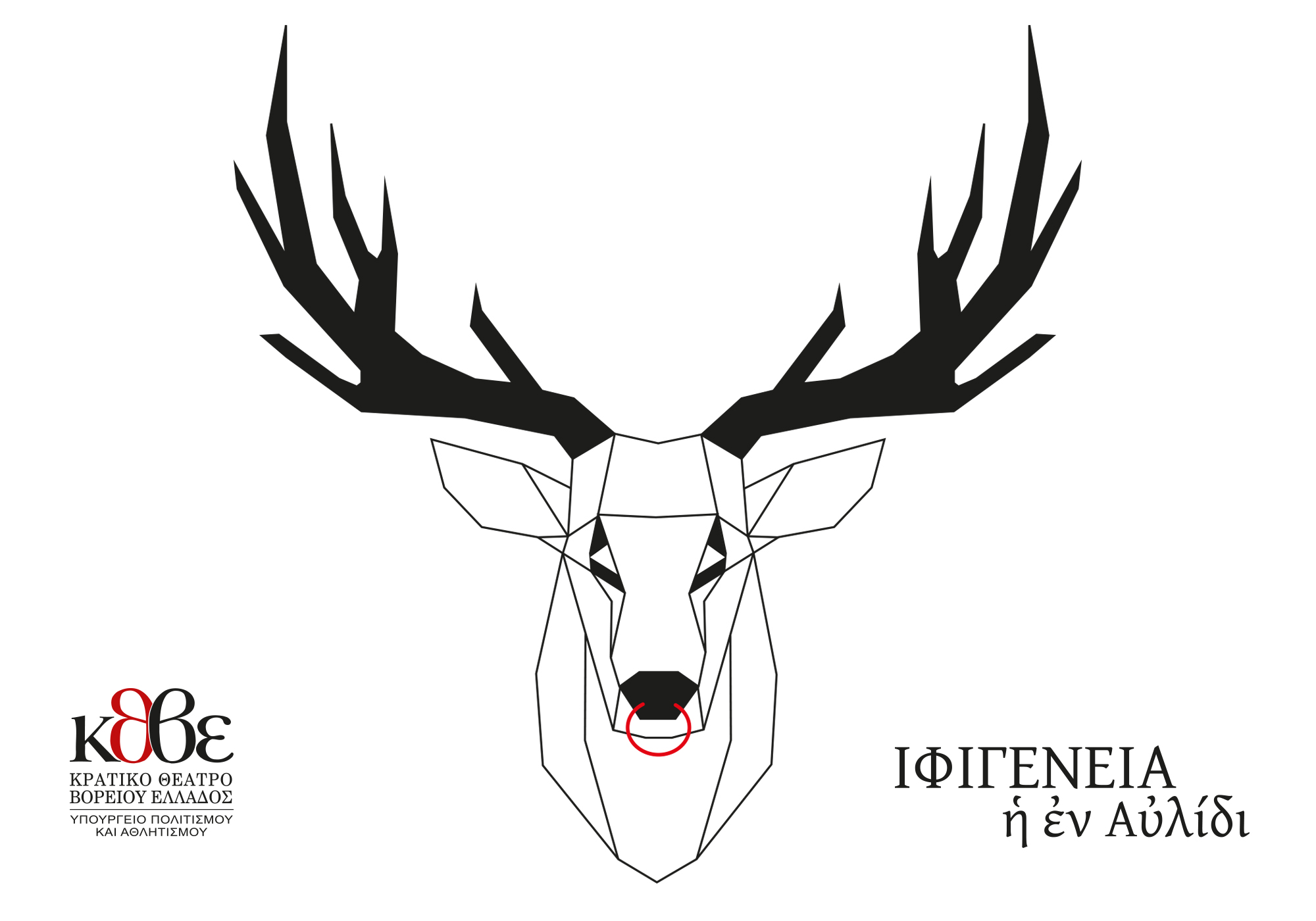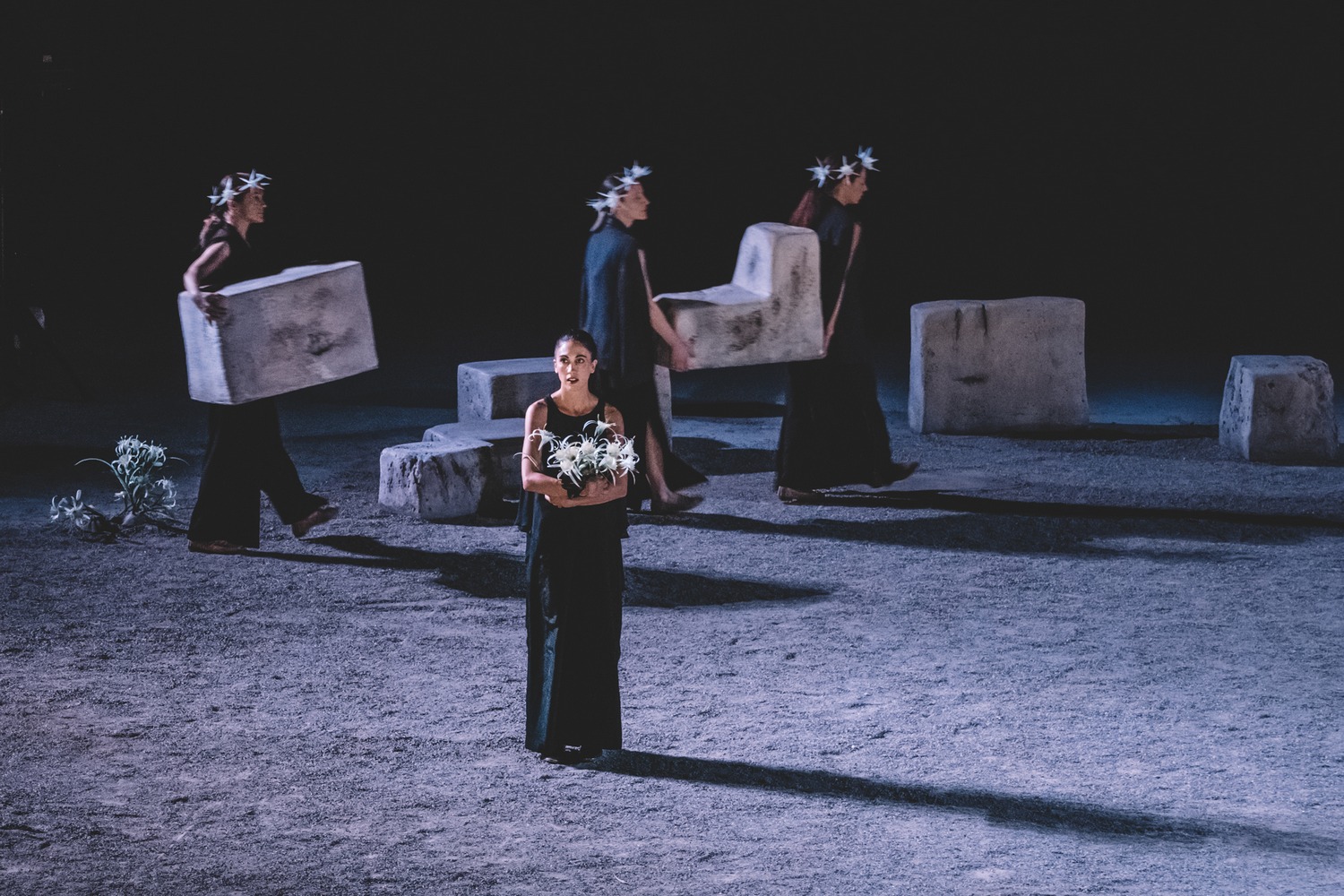National Theatre of Northern Greece - Yannis Kalavrianos
Iphigenia in Aulis
by Euripides

One of Euripides’ late plays, it was written between 408 and 406 BC and presented posthumously at the Great Dionysia, where it won first prize. The tragedy focuses on the fateful decision of Agamemnon, commander of the Greek forces, to sacrifice his daughter, Iphigenia. In the beginning of the play, the Greek fleet plans to sail to Troy, but remains stuck in Aulis as the wind has lulled. The seer Calchas reveals that the wind has died down due to Artemis being furious with Agamemnon after being insulted by him. The goddess will only be appeased if Agamemnon sacrifices his daughter, Iphigenia. Agamemnon invites Iphigenia to Aulis, on the pretext of marrying her to Achilles, the most admired warrior among the Greeks, prior to their departure for the war. Faced with a horrific dilemma, torn between his daughter and his people, Agamemnon nevertheless decides to proceed to the sacrifice, dismissing the pleas of Clytemnestra, Iphigenia, Achilles, the army threatening him with mutiny, even his own brother, Menelaus. The noble Iphigenia ultimately reconciles herself with her tragic fate and her heroic death for her people’s sake. In the denouement, a messenger announces to Clytemnestra that Iphigenia’s body disappeared from the sacrificial altar shortly before receiving the final blow.
With Greek and English surtitles
Related Events
Ancient Theatre of Epidaurus
- 19/07 until 20/07/2019 at 21:00
all events
Opera | Theatre | Dance | Premiere | Greek Debut
all venues



































